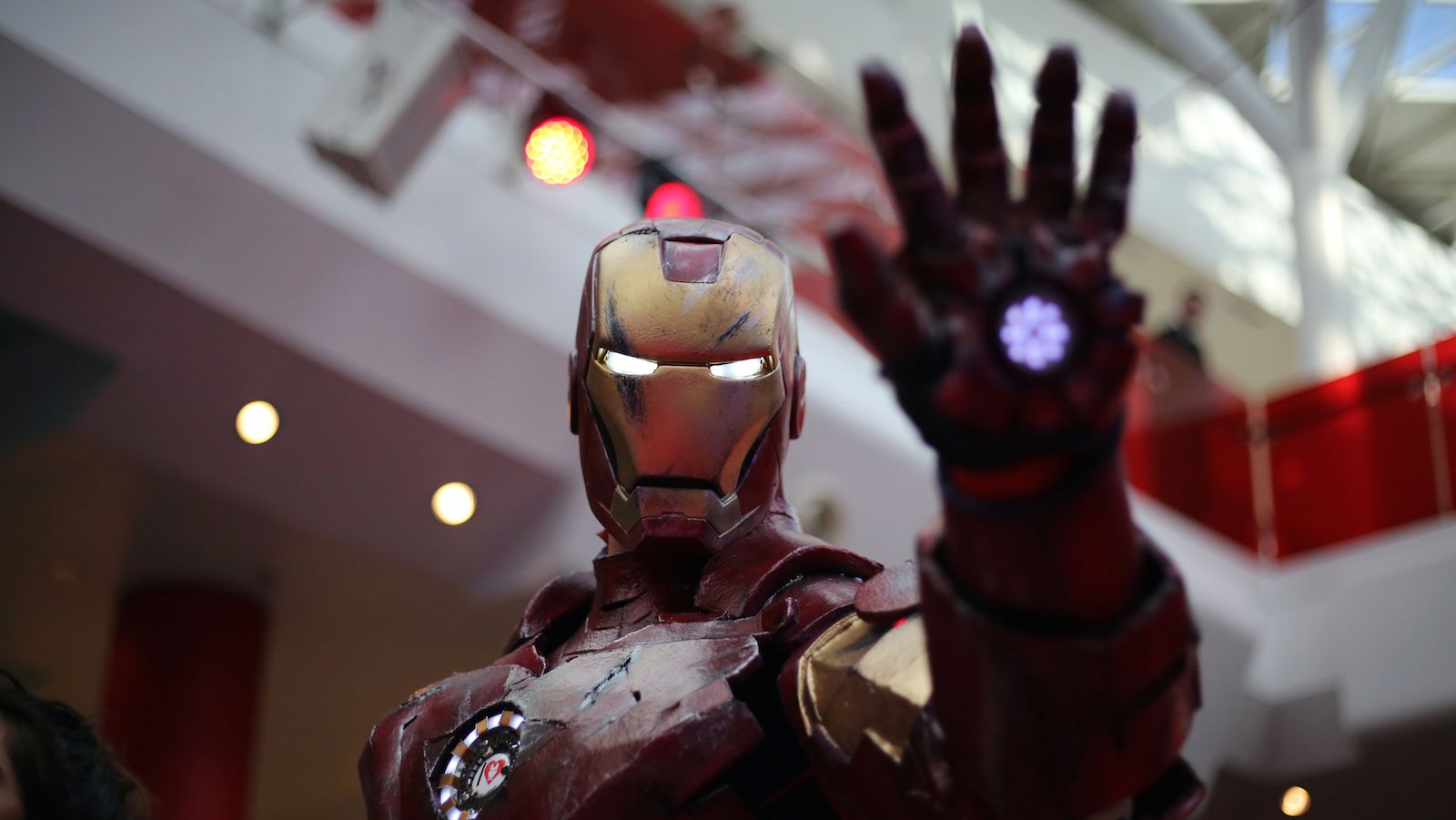Too much diversity? Marvel says some comic-book readers are pushing back against its relaunched titles
Thor, the Norse god of thunder, is now a woman. A young Muslim woman has taken up the mantle of Ms. Marvel. A black teenage girl is filling the shoes of white billionaire playboy Tony Stark, a.k.a. Iron Man. And Spider-Man is black and Latino.


Thor, the Norse god of thunder, is now a woman. A young Muslim woman has taken up the mantle of Ms. Marvel. A black teenage girl is filling the shoes of white billionaire playboy Tony Stark, a.k.a. Iron Man. And Spider-Man is black and Latino.
Over the past few years, Marvel—which is now owned by Disney—has updated some of its biggest comic-book superheroes with diverse new alter-egos, and launched new characters like Moon Girl, a 9-year-old black girl who is the smartest person in the Marvel universe. The refreshed titles have made the historically white-and-male-dominated medium a tad more representative of the overall population and opened it up to a new class of readers.
But not everyone is happy about Marvel’s quest to become more inclusive. Some fans, according to one Marvel executive, are resistant to seeing Marvel’s core heroes change. David Gabriel, Marvel’s vice president of sales, told industry blog ICv2:
What we heard was that people didn’t want any more diversity. They didn’t want female characters out there. That’s what we heard [from retailers], whether we believe that or not I don’t know that that’s really true, but that’s what we saw in sales.
We saw the sales of any character that was diverse, any character that was new, our female characters, anything that was not a core Marvel character, people were turning their nose up against. That was difficult for us because we had a lot of fresh, new, exciting ideas that we were trying to get out and nothing new really worked.
Gabriel said this shift started in October 2016, around the time of the US presidential election. In November, overall shipments of comic-books, graphic novels, and magazines to North American comic-book shops fell roughly 4% year-over-year to $49.9 million, according to Comichron.
And Marvel’s share of the market ticked down from around 43% to 38% year-over-year during that month, in terms of the overall dollar value of publications shipped to comic shops, as reported by Diamond Comic Distributors, the exclusive distributor of titles by Marvel, DC, and other major publishers in North America.
Fans, at the time, were “angry” and didn’t wanted diversity shoved down their throats, Gabriel suggested. That wasn’t just at Marvel Comics.
The role of how “inclusive” popular culture should be has been a talking point in recent years. There was the anti-diversity-in-videogames movement known as Gamergate and the all-female Ghostbusters reboot, which was attacked when trying to relaunch a beloved franchise.
The film industry, meanwhile, was publicly shamed when it failed to recognize black actors in any major Academy Awards categories for two years in a row with the trending #OscarsSoWhite hashtag. That led to major changes at the Academy and a record six black actors nominated.
‘An untapped audience’
Comic-book publishers in particular have long been slammed for sexualizing female characters and failing to authentically represent minorities on and off the page.
Poet Yona Harvey told Quartz last year that she felt an enormous pressure to live up to fans’ expectations when she was brought on, with feminist writer Roxane Gay, as Marvel’s first team of black-and-female writers, for World of Wakanda, a spinoff of Ta-Nehisi Coates’s Black Panther series.
“I did feel worried about the Marvel fans because I knew I didn’t bring all of the Marvel archive with me to the process,” she said last November. “I did have a sense of not wanting to disappoint them.” But she also wanted to bring the ”kind of details that a non-black woman writer might miss,” she said.
Despite the downturn in sales, Marvel’s plans haven’t changed and its new heroes aren’t going away anytime soon, Gabriel told ICv2, in a correction of his statement. Other fans were “invigorated” by the new titles, he said. In 2014 and 2015, the first five issues of the series starring the female Thor outsold the comparable issues that launched the previous Thor series, Thor: God of Thunder, in 2012, Fusion reported based on Comichron data.
And Ms. Marvel Vol. 1 with Kamala Khan, a Muslim teenager from New Jersey, was the best-selling graphic novel when it debuted in October 2014. The author, Gwendolyn Willow Wilson, said in a blog post that this wasn’t because the title was “diverse,” but because it touched audiences in new and unexpected ways.
“A h-u-g-e reason Ms. Marvel has struck the chord it has is because it deals with the role of traditionalist faith in the context of social justice, and there was–apparently–an untapped audience of people from a wide variety of faith backgrounds who were eager for a story like this,” she said. “Nobody could have predicted or planned for that.”